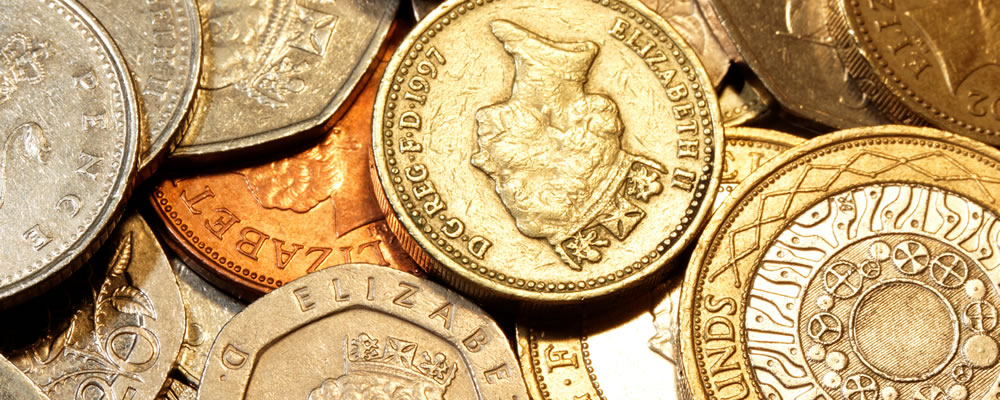The Euro Pound exchange rate advanced yesterday, despite weak inflation data from the Eurozone weighing on the common currency. The common currency remained firm as the Eurozone’s second quarter growth data met estimates for quarterly expansion of 0.3% and annual growth of 1.6%.
- EUR GBP advances despite inflation data – Price growth remains sluggish
- Questions raised over ECB effectiveness – Is monetary policy nearing its limit?
- Pound falls after multiple negative developments – Housing price growth weak
- EUR GBP forecast – Slew of Eurozone GDP figures to move exchange rates
The bad economic news for the UK kept piling up yesterday, allowing a somewhat unstable Euro to make a strong advance.
Euro in Cautious Advance as German GDP Figures Show Above-Forecast Economic Growth
German GDP data has revealed that the economy performed much better-than-expected during the second quarter of 2016. Working day adjusted (WDA) GDP was expected to slow from 1.6% to 1.4% on the year, but instead only dipped from an upwardly-revised 1.9% to 1.8%. On a non-seasonally adjusted basis, GDP grew from an upwardly-revised 1.5% to 3.1%, above the forecast of 2.8%.
The Euro has strengthened as a result of the figures, but with plenty of data yet to come, the common currency is moving cautiously.
(Last updated 08.44. 12/08/2016)
Weak Inflation Data Softens Euro, but Pound Weakness Enables EUR GBP Advance
While bullish against the Pound, the Euro was weaker overall thanks to poor inflation data from several Eurozone member states. Harmonised and non-harmonised inflation declined at -0.4% on the month in France, while Italian inflation measures declined across the board, with the exception of localised month on month consumer price growth. Harmonised Italian inflation was particularly bad, falling from 0.2% growth to a decline of -1.9% on the month. Irish inflation weakened on the month.
This all boded ill for the European Central Bank (ECB), which is currently deep into its latest package of monetary stimulus which includes zero borrowing costs, negative interest rates and €80 billion of monthly asset purchases. Regardless of this, inflation is clearly still sluggish, creating problems for policymakers and raising concerns for investors over the long-term outlook of inflation.
Slew of Bad News for the UK Keeps Pound Euro (GBP EUR) Exchange Rates on the Decline

The Pound slumped against the Euro yesterday, hitting a three-year low on the back of multiple headwinds. The Pound’s decline started after the Royal Institute of Chartered Surveyors (RICS) House Price Balance fell further-than-expected. Economists were correct that the index would drop -10%, but a one point revision to the previous month’s figure meant July’s score printed at 5% instead of 6%.
Moody’s also contributed to the gloom surrounding the housing market after releasing a report which suggested that UK commercial real estate would be affected negatively by the Brexit vote.
Elsewhere, consumer confidence hit a two-year low, according to the latest Primary Consumer Sentiment Index (PCSI) by Thomson Reuters/Ipsos. However, Ipsos MORI Managing Director of Consumer Affairs Bobby Duffy claimed this was largely unaffected by the Brexit referendum, stating;
‘Consumer confidence decreased slightly in the month to August, but it shows little sign of a significant, sustained ‘Brexit effect’ as yet.’
Later, a survey of around 60 economists by Reuters suggested that the UK was heading for a mild recession. The average expectations revealed were for a decline in GDP of -0.1% during the next two quarters, while a further interest rate cut from the Bank of England (BoE) is predicted for November.
19 of the 23 economists asked by Reuters about Mark Carney’s dismissal of negative interest rates believed the BoE Governor was right to do so. Commerzbank’s Peter Dixon explained;
‘You might argue that ruling out any policy option is unwise, and under normal circumstances it is, but my interpretation of Carney’s message is that there are limits to what monetary policy can achieve and that the ball is in the government’s court to take appropriate measures.’
Euro Pound (EUR GBP) Exchange Rate Forecast; Eurozone Data Slew to Dominate
Multiple high-impact Eurozone data releases today could save the Pound from entering the weekend further below the current three-year low. Germany’s finalised consumer price index for July is predicted to hold steady at 0.4%. German gross domestic production is expected to weaken on a Working Day Adjusted (WDA) basis and strengthen markedly on a non-seasonally adjusted basis. Italy’s seasonally adjusted WDA GDP is predicted to weaken, while seasonally-adjusted Eurozone GDP for the second quarter is expected to hold steady at 1.6%.
The UK is set to release construction output figures, which are predicted to continue declining. The fall in output is forecast to slow on the month and accelerate on the year.
EUR, GBP Conversion Rates
The Euro Pound (EUR GBP) exchange rate was trending around 0.8617, while the Pound Euro (GBP EUR) exchange rate was trending around 1.1604, towards the end of yesterday’s European session.



